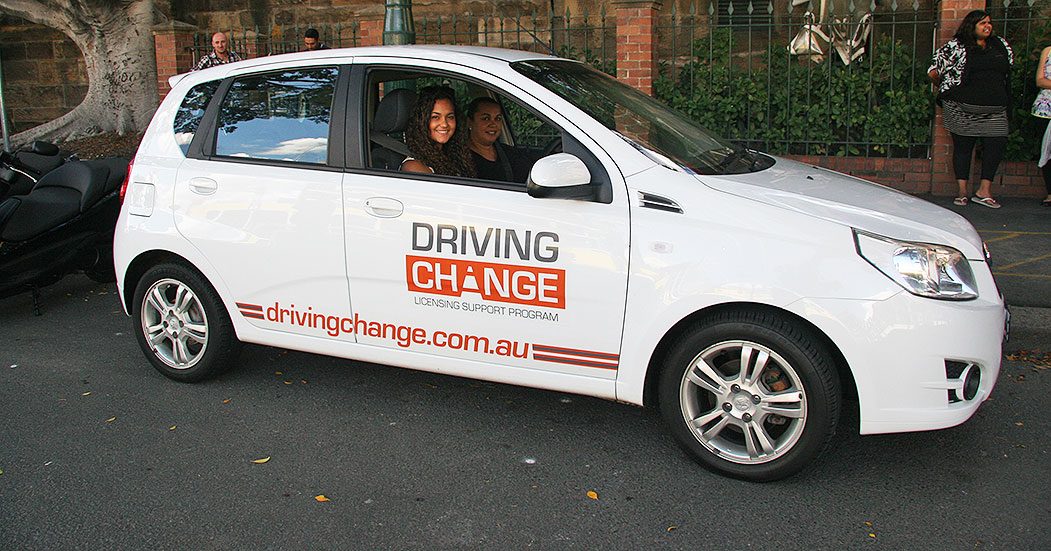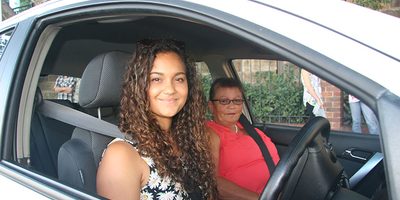
Access to driver licences linked to employment and education
There is a strong link between driver licencing and employment for Aboriginal and Torres Strait Islander people, according to new research from The George Institute for Global Health.
People who held a driver licence had a four times higher chance of being in full-time employment or graduating from university, and were twice as likely to have a trade or certificate.
The findings reinforce the need to break down the barriers that prevent many Aboriginal people from accessing the licencing system in Australia.
Lead author Rebecca Ivers said: “Driving to work or college is something most people take for granted and in many parts of Australia a driver licence is essential for mobility. Having a driving licence can be transformative in terms of education and employment. But for many Aboriginal and Torres Strait Islander people, getting a licence can be a major challenge.”
Surveys were conducted with more than 600 Aboriginal people across four Aboriginal Medical Services in NSW and South Australia – in Redfern, Griffith, Ceduna and Port Lincoln. Respondents were questioned on their learning to drive experiences and factors associated with licencing including employment and education. The Australian Research Council funded study was conducted with the support the collaborating Aboriginal Medical Services and NSW and SA Governments.
Key findings:
- Almost one quarter of respondents with a current licence indicated they had had difficulty finding a licenced driver to teach them.
- Over a quarter reported they were sometimes unable to afford the cost of petrol to drive as a learner.
- Of employed people, 64 per cent reported holding a licence compared to just 36 per cent of those who were unemployed.
- Compared to not having a licence, having a driver licence was associated with a 4 times higher chance of being in full-time employment or having a degree qualification
- Just 64 per cent of those surveyed had a licence compared to a rate of 83 per cent for the general population in NSW.
The work by The George Institute, Flinders University and the University of Wollongong backs up evidence that Aboriginal people are under-represented amongst licence holders and face significant challenges to gaining a licence.
These include lack of formal identification documents, high cost of driving lessons, lack of supervisory drivers for learners and fines or debt sanctions. Professor Ivers said the work demonstrated an overwhelming need for continued investment in programs such as The George Institute’s Driving Change, an innovative driver licencing initiative for young drivers.
Since it began in 2013, the program has been implemented in 12 communities across NSW. Driving Change has provided assistance to more than 1000 participants of which 350 have so far gained their licence by accessing help with getting their learner or provisional licence, accessing a car and supervising driver, assistance to manage fines and liaise with State Debt Recovery Office or getting legal help.
Co-author Kathleen Clapham, of the Australian Health Services Research Institute, University of Wollongong, said: “It is important that we have programs that tackle this issue by taking holistic approach to addressing the many barriers facing Aboriginal people trying to obtain a licence.”
“Driving Change is proving successful because it is working with local Aboriginal communities, tapping into existing organisations, using local employment and consulting at the community level to maintain and improve the program. It’s working with and enhancing the capacity of organisations have already established connections with the community.”
“The 2016 Prime Minister’s report on Closing the Gap showed, that Australia is not on track to meet its target to halve the gap in employment outcomes between Indigenous and non-Indigenous Australians within a decade (by 2018). In fact, no progress has been made against the target since 2008. One way to make a difference in employment outcomes is to start to seriously address some of the many barriers to Aboriginal accessing employment. Programs such as Driving Change provide a real and positive opportunity to make progress in this fundamentally important area.”
Professor Ivers, from The George Institute, added: “Given the strong linkages between licencing and employment, and the consistent messages from community members about the need for community based driver licencing support programs, long term investment in funding for such programs is crucial.
“Organisations should not have to continually write grants for small pots of funding that regularly dry up when so much is at stake. “
The Driving Change program has been funded by AstraZeneca’s Young Health Program, NSW Health and Transport for NSW as part of a pilot program under evaluation by The George Institute but there is a need for further funding.
Read the original research published in the Australian and New Zealand Journal of Public Health.




